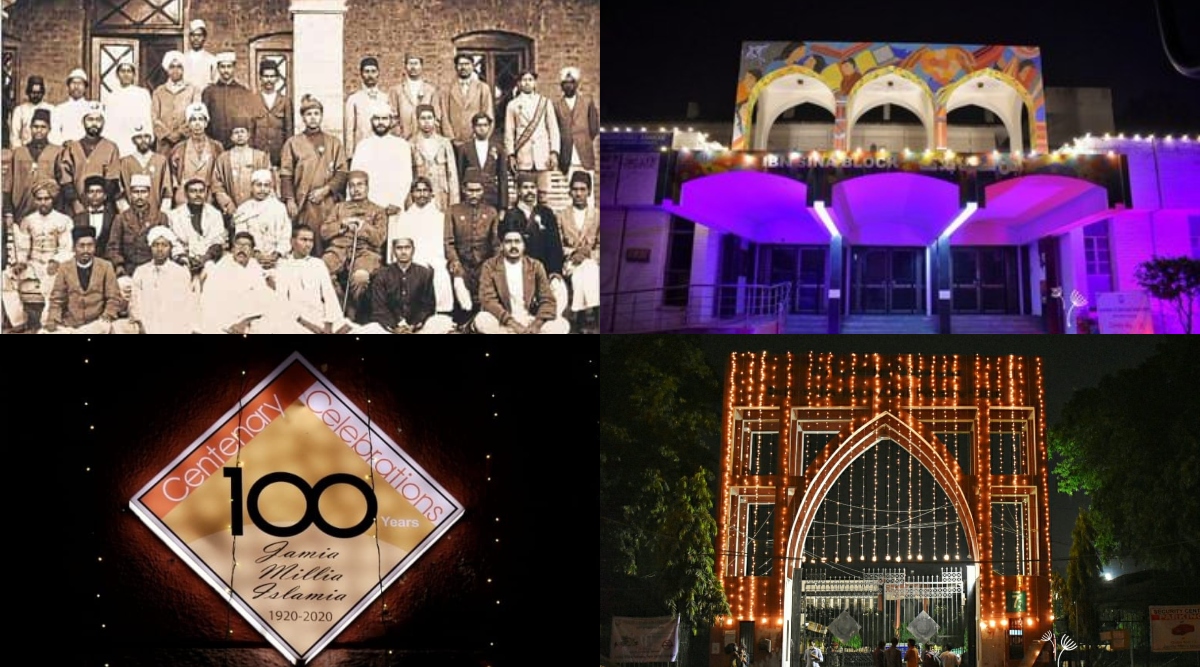As Jamia turns 100, journalist revisits its beginnings aimed to ‘free education from British influence’

By Ayushi Malik, TwoCircles.net
Jamia Millia Islamia (JMI), which was ranked as a top among all central universities in India by the Ministry of Education, turned 100 on October 29, 2020.
Established in response to the call of the Non-Cooperation Movement by Mahatma Gandhi, the minority educational institution was founded on October 29, 1920, in Aligarh with an aim to have an independent educational institution free from the British influence.
In 1920, Mahatma Gandhi had visited Muhammadan Anglo-Oriental (MAO) College in Aligarh and gave a call for Non-Cooperation Movement, asking Indians to boycott all British Government’s institutions.
The call moved the Muslim Nationalist leaders and students, including Mohammad Ali Jauhar, Shaukat Ali, Maulana Mahmud Hasan, Hakim Ajmal Khan, Abdul Majeed Khwaja, Dr Mukhtar Ahmad Ansari and Dr Zakir Hussain joined Gandhi to rebel against the British Raj educational institutions and administration. On October 20, 1920, at the Jama Masjid of Aligarh Muslim University, Maulana Mahmud Hasan laid the foundation stone of Independent National University, later renamed Jamia Millia Islamia.
The centenary foundation day also marks the first anniversary of a book titled Jamia Aur Gandhi (Jamia and Gandhi) which explores the relationship Gandhi shared with Jamia Millia Islamia. Written by journalist Afroz Alam Sahil, also an alumnus of Jamia, the book throws light on the love Gandhi had for the institution.
Talking to TwoCircles.net, Afroz said that his curiosity to explore the role of Gandhi in the foundation of Jamia was inspired while he was working on exploring the unsung heroes of Champaran. “While studying in Jamia, I found that not enough information was available in the public domain about Gandhi’s contributions to Jamia.”
Sahil said that during his research for the book, he read that Gandhi had predicted that Jamia Millia Islamia would be ranked top among Indian Universities and he points out how that had come true in present times.
Jamia secured top spot in Government’s Central University rankings in August 2020 despite being at the forefront of anti-CAA protests that rocked the nation and violence against its students in December 2019.
Commenting on how the University has always been a symbol of resistance since it’s initiation in 1920, Afroz said, “Jamia and it’s students have always resisted against oppression, be it in 1900s against the British Raj or in today's dark times.”
In December 2019, Jamia led the protests against Citizenship Amendment Act following which there was a violent crackdown on the students inside the campus on December 15, 2019, by Delhi Police. The use of violence on students inside the University campus forced people from the whole country to come out on the roads in support of students and against the draconian law.
Sahil draws a parallel between the times a century ago, he states, “In 1920, Gandhi spoke against the Jallianwala Bagh massacre and Rowlatt act. He said ‘While protests against Rowlatt Act, Britishers commented how people who are protesting can be identified by their clothes to which Gandhi replied that from now on they will give up on foreign clothes and use Khadi as to show their nationality and identify as Indian.’”
Sahil points out that a similar comment regarding the ‘identification by clothes’ comment was also made by PM Narendra Modi during the anti CAA protests by Jamia students.
Sahil further said that when it comes to speaking for the right cause, students of Jamia Millia Islamia have always been at the forefront. “In Aligarh in 1920, students of Jamia had only started the boycott movement of British goods and clothes by burning foreign clothes in support of Non-Cooperation Movement.”
Sahil believes if Mahatma Gandhi would have been alive today, he would have led the students in the fight against the Citizenship Amendment Act.
Afroz uses several examples in his book to show how Hindus and Muslims drew inspirations from the nationalist cause to fight against oppression and for Gandhi it was his nationalist project as a Muslim Institution in India that would safeguard their identity as well as be one of the finest educational institutions in the country.
The book released in the Hindi language is one of its first kind in the country. The book is an attempt to celebrate Gandhi’s contributions and the sacrifices he made towards the development of Jamia and to immortalize his legacy.
